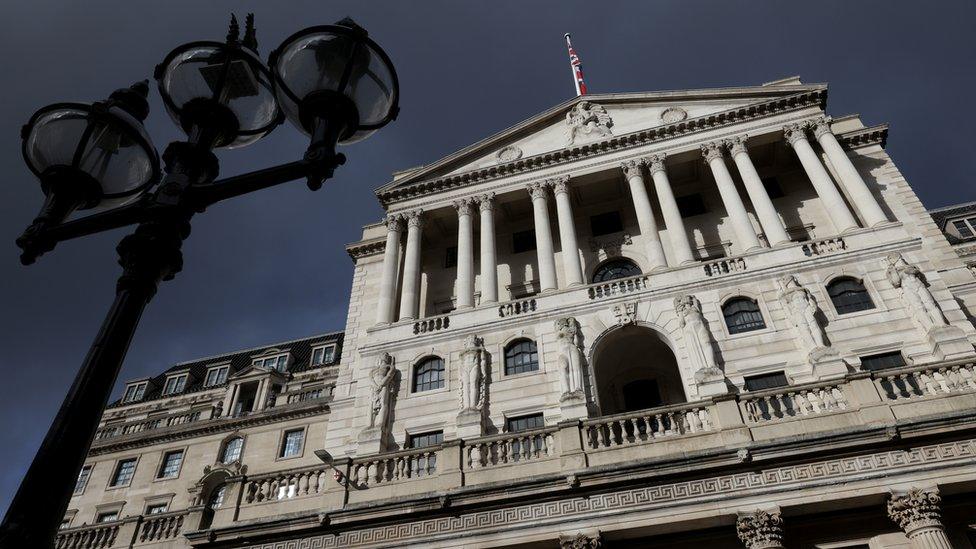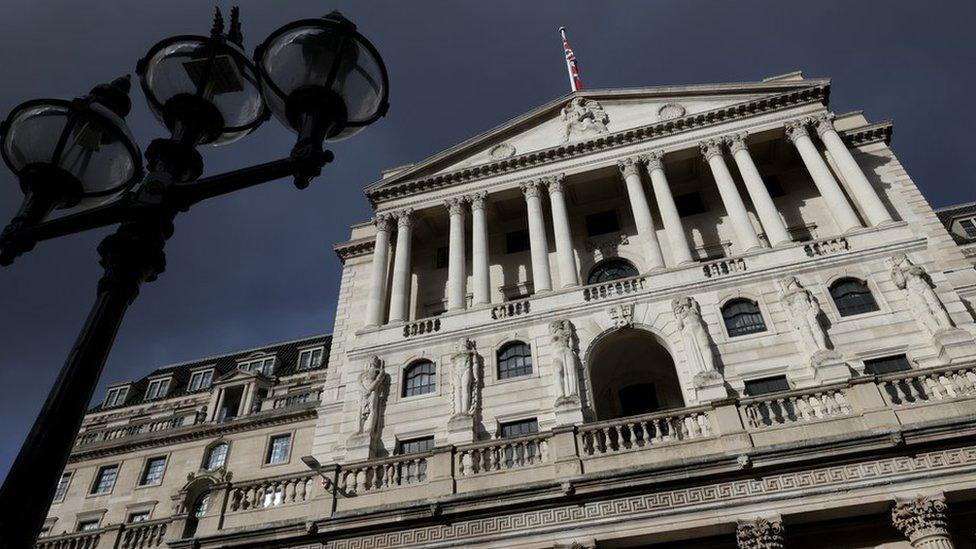December rate rise hangs in balance amid Omicron
- Published

An interest rate rise in December is hanging in the balance after a Bank of England policymaker said the Omicron coronavirus variant could slow the UK economy.
Michael Saunders was one of only two policymakers who voted for a rate hike in November.
But he said on Friday that he needed more information before making a decision at the meeting this month.
The Bank shocked markets in November after voting to hold the interest rate.
It had been widely expected to lift borrowing costs from a record low of 0.1% to combat rising inflation.
The Bank did not rule out an increase at the next meeting in December. When pressed on when a rate rise might come, Bank of England governor Andrew Bailey said last month: "From now onwards."
However, Mr Saunders said in a speech on Friday, external: "At present, given the new Omicron Covid variant has only been detected quite recently, there could be particular advantages in waiting to see more evidence on its possible effects on public health outcomes and hence on the economy."
Though he said there were also risks from delaying an interest rate rise for too long: "Continued delay also could be costly."
While Omicron might slow Britain's economy, Mr Saunders said it could also help push up the cost of living if it led to people spending less on going out and other in-person services and more on goods, when supply chains are already strained.
A delay in raising rates could also lead to employers scrambling for staff.
"This could require a more abrupt and painful policy tightening later," Mr Saunders said. "For me, the balance between these considerations is likely to be a key factor at the December meeting."
Sterling fell against the dollar and the euro after Mr Saunders's comments.
Investors were pricing in only a 33% chance of a December rate hike after his speech, down from about 75% last week before news broke of the new variant.
The Bank will announce the interest rate decision on 16 December.
The Bank of England confounded investor expectations of a rate rise in November when it said it wanted to wait for more data on whether the end of the furlough scheme in October had led to a jump in unemployment.
Mr Saunders said the end of the government job support scheme did not appear to have hit to the labour market very hard.
He said the rates were likely to rise over the next few quarters, assuming the economy performs as expected.
In a question-and-answer session after his speech, the former Citi economist declined to give a steer on his likely decision at this month's meeting.
"I don't want to use code words today to indicate either way as to what my vote at the December meeting might be. There are potential costs and benefits to waiting for more data," he said.
Mr Saunders and deputy governor Dave Ramsden were the two members of the Bank's nine-strong Monetary Policy Committee who cast votes in early November to raise Bank Rate to 0.25%.
However, Mr Bailey said the decision had been a "close call".
Related topics
- Published30 November 2021
- Published4 November 2021
